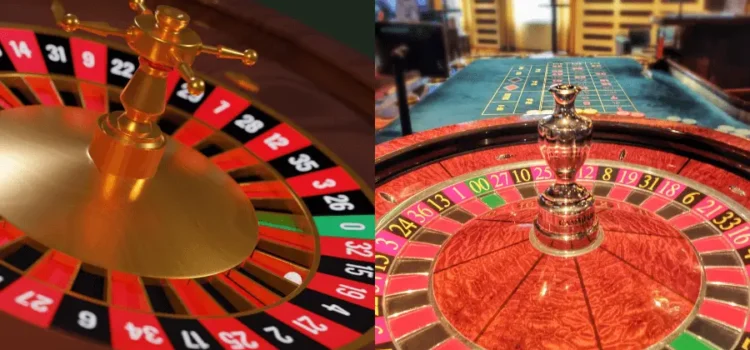
Live online casinos offer the perfect mix of convenience and the authentic excitement of a land-based casino. These platforms allow players to enjoy live dealer games from the comfort of their own homes, offering an immersive experience with professional dealers and high-quality streaming. Our team of experts has analyzed over 160 live casino sites using our exclusive Jackpot Meter rating system to find the best options for you.
In this guide, you’ll discover the top live casinos based on game variety, streaming quality, and more. Whether you’re a seasoned gambler or a newcomer, these casinos offer everything you need for an enjoyable and fair gaming experience.
What You’ll Find in This Guide:
- Best Live Casino Sites for Different Needs
- Key Features of Top Live Dealer Casinos
- How We Evaluate Live Dealer Casinos
- Popular Live Dealer Games for Real Money
- Trusted Live Casino Software Providers
- How to Pick the Best Live Casino for You
Top Live Casino Sites for Different Types of Players
Bovada: Best for Live Dealer Blackjack
Bovada stands out for its exceptional live dealer blackjack games. With a variety of tables available and a professional dealer team, it offers an authentic blackjack experience right at your fingertips.
BetUS: Best for Live Dealer Roulette
BetUS excels in its live dealer roulette offerings, featuring a range of tables and professional dealers. The site ensures smooth gameplay and high-definition streams, making it an excellent choice for roulette lovers.
Ignition Casino: Best Overall Live Casino
Ignition Casino offers a well-rounded live gaming experience, providing a wide range of live dealer games, including poker, blackjack, and roulette. Its top-notch customer service and smooth gameplay make it a favorite for many players.
Drake Casino: Best for Beginners
Drake Casino is ideal for new players who want an easy-to-navigate platform. It provides a simple and welcoming environment, making it perfect for those just starting their live casino journey.
Cafe Casino: Best for High-Stakes Games
For high rollers, Cafe Casino offers a selection of premium live dealer tables with higher betting limits. It’s perfect for players who enjoy the intensity of high-stakes gameplay.
Super Slots: Best for Crypto Users
Super Slots shines as the best live casino for cryptocurrency enthusiasts. It integrates crypto payments seamlessly and offers a variety of live dealer games, making it a go-to for digital currency players.
DuckyLuck Casino: Best Mobile Live Casino
DuckyLuck Casino excels in mobile gaming, offering a smooth live dealer experience on both smartphones and tablets. Its mobile platform delivers the same high-quality streaming and variety of games as its desktop version.
Wild Casino: Best for Software Variety
With a wide selection of software providers, Wild Casino offers an impressive variety of live dealer games. Whether you prefer blackjack, baccarat, or roulette, this site delivers a diverse and dynamic gaming experience.
How We Evaluate Live Dealer Casinos
To determine the best live casinos, we focus on several key aspects:
- Game Variety: A top live casino should offer a broad selection of games, such as blackjack, roulette, baccarat, and poker.
- Streaming Quality: High-definition video and seamless streaming are critical for an immersive experience.
- Software Providers: We look for casinos that partner with reputable software providers to ensure fair, high-quality games.
- User Experience: Easy navigation, responsive customer service, and a smooth interface contribute to a great overall experience.
- Payment Options: The best casinos offer secure payment methods, including options for cryptocurrency transactions.
Popular Live Dealer Games for Real Money
Live Blackjack: This classic game is a favorite for many players. Test your skills against a live dealer and aim for a winning hand without going over 21.
Live Roulette: Spin the wheel with live dealers in both European and American versions of roulette. The excitement of watching the ball spin in real-time adds a thrilling element to the game.
Live Baccarat: Known for its fast pace, live baccarat allows players to bet on the player or banker hand. It’s a simple yet exciting game with a low house edge.
Live Poker: Whether you’re a seasoned poker player or just starting, live poker tables provide an engaging way to compete in real-time against other players.
Top Live Casino Software Providers
The best live casinos use high-quality software from trusted providers. Some of the most well-known names in the industry include:
- Evolution Gaming: Known for its innovative live dealer games and high production values, Evolution is a leader in the live gaming industry.
- NetEnt Live: With a focus on sleek, user-friendly designs, NetEnt Live provides a premium live casino experience.
- Ezugi: Ezugi specializes in customizable live dealer experiences, allowing casinos to offer unique games tailored to their players’ preferences.
Choosing the Best Live Dealer Casino for You
When selecting a live casino, consider these important factors:
- Reputation: Look for casinos with positive reviews and a strong track record of fair play.
- Game Selection: Choose a casino that offers your preferred live dealer games and a wide range of options.
- Streaming Quality: Ensure that the casino provides high-quality video streams for an immersive experience.
- Bonuses: Many live casinos offer generous bonuses for new players, so be sure to check for promotions that enhance your experience.
- Payment Methods: Verify that the casino offers your preferred payment options, especially if you plan to use cryptocurrency.
Ready to Try Live Online Casinos?
Whether you’re a fan of blackjack, roulette, or poker, the best live casinos offer a variety of exciting games and an authentic gaming experience. With our guide, you can find the right platform that meets your needs and start playing today. Enjoy the thrill of live dealer games from the comfort of your home!
















